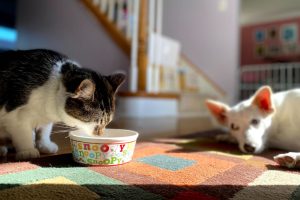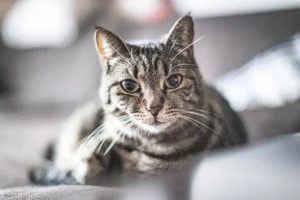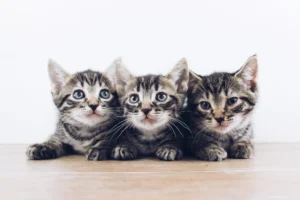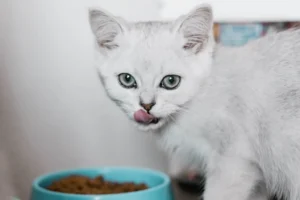Cats seem to age at a rapid pace, leaving their owners wondering why this phenomenon occurs. In this blog post, we will explore the reasons behind why cats age so quickly, providing insight into their lifespan and unique biology.
Have you ever wondered why cats seem to age faster than humans or other animals? The reason lies in their biology, metabolism, and genetics. Cats have a shorter lifespan compared to humans, and their bodies go through changes at a quicker rate, leading to the appearance of rapid aging.
Metabolism and Aging
Cats are known for their high metabolism, which plays a significant role in their quick aging process. Unlike humans, who age gradually over time, cats seem to age at a faster rate due to their metabolic rate. This fast metabolism means that their bodies work harder and wear out quicker, leading to visible signs of aging such as reduced mobility and slower cognitive function.
The metabolism of cats is like a high-speed train, constantly fueling their bodies but also causing them to age swiftly. This quick metabolism means that they process food and energy rapidly, but it also puts a strain on their organs and tissues, contributing to the aging process.
Additionally, the fast metabolism of cats requires them to eat frequently to maintain their energy levels. This constant need for food can sometimes lead to weight gain and other health issues, further accelerating the aging process. Therefore, it’s crucial to provide older cats with a balanced diet and regular exercise to support their metabolism and overall aging process.
Genetics and Lifespan
When it comes to genetics and lifespan, cats are a unique case study. While some cats seem to defy the odds and live well into their late teens or even twenties, the majority of cats age more rapidly than humans or even other domesticated animals. This discrepancy can largely be attributed to genetics.
Like humans, cats inherit various genetic factors that can influence their lifespan and aging process. Some cats may inherit genes that predispose them to certain health conditions or aging-related issues, while others may have genes that help them stay spry and youthful for longer.
One genetic factor that plays a significant role in cat aging is telomeres. Telomeres are protective caps on the ends of DNA strands that shorten with each cell division, ultimately leading to cell death. Cats have relatively short telomeres compared to other animals, which means that their cells may reach their replicative limit faster, contributing to the aging process.
It’s essential to consider your cat’s genetics when planning for their aging care. Understanding their genetic predispositions can help you anticipate and address potential aging-related issues proactively. By providing them with a supportive environment and regular veterinary care, you can help your cat age gracefully and enjoy a high quality of life in their golden years.
Environmental Factors
Cats age quickly due to various environmental factors. Diet plays a crucial role in their aging process. A diet high in nutrients can help cats maintain a healthy weight and overall health, slowing down the aging process. Regular exercise is also vital for keeping cats agile and preventing age-related issues. Providing a stimulating environment with plenty of opportunities for play and mental stimulation can also contribute to slowing down the aging process in cats.
Another essential factor is living conditions. Cats that live in a stressful environment are more likely to age quickly. Ensuring a calm and peaceful living space with plenty of opportunities for rest and relaxation can help cats age more gracefully. By addressing these environmental factors, you can help your feline friend live a longer, healthier life.
Common Health Issues
As cats age quickly, they are prone to certain common health issues that can impact their quality of life. These include arthritis, dental problems, and kidney disease. Regular veterinary check-ups are crucial for early detection and treatment of these issues. Providing a balanced diet tailored to senior cats’ needs can also help prevent or manage these health issues.
Regular dental care is essential to prevent dental problems that can affect older cats’ overall health. Brushing your cat’s teeth regularly and providing dental treats can help maintain their dental hygiene. Additionally, keeping an eye on their weight and activity levels can help detect any health issues early on.
Additional Insight Don’t forget about the importance of mental stimulation for aging cats. Providing interactive toys, puzzle feeders, and engaging playtime can help keep their minds sharp and prevent cognitive decline as they age. Mental stimulation is just as important as physical exercise in helping your cat age gracefully.
Remember, by addressing environmental factors and staying proactive about common health issues, you can help your cat live a longer, healthier life.
Mental and Emotional Well-being
Cats age quickly, and taking care of their mental and emotional well-being can help slow down this process. Just like humans, cats can experience stress, anxiety, and depression, which can impact their overall health. To ensure your feline friend lives a longer and healthier life, it’s crucial to pay attention to their mental and emotional state.
One way to promote mental and emotional well-being in cats is by providing an enriched environment. This can include interactive toys, scratching posts, and climbing structures to keep them mentally stimulated. Additionally, spending quality time with your cat through play and cuddle sessions can strengthen your bond and boost their emotional well-being.
Monitoring your cat’s behavior is also essential in recognizing any changes that may indicate stress or anxiety. If you notice any unusual behaviors, such as excessive grooming, hiding, or aggression, it’s crucial to consult with your veterinarian to address any underlying issues.
Remember, a happy and content cat is more likely to age gracefully. By prioritizing your cat’s mental and emotional well-being, you can help them live a longer and healthier life.
Tips for Prolonging Your Cat’s Life
When it comes to extending your cat’s lifespan, making small changes in their daily routine can make a significant difference. Here are some practical tips to help your feline companion live a longer, healthier life:
- Regular Vet Check-ups: Schedule annual check-ups with your veterinarian to catch any health issues early.
- Balanced Diet: Feed your cat a well-balanced diet to support their overall health and longevity.
- Stay Active: Encourage regular exercise through interactive play sessions to keep your cat fit and healthy.
- Maintain Dental Health: Good oral hygiene is crucial for your cat’s overall well-being. Brush their teeth regularly or provide dental treats.
- Provide Mental Stimulation: Keep your cat engaged with toys, puzzles, and interactive games to prevent boredom and promote mental sharpness.
By incorporating these tips into your cat’s care routine, you can help them lead a longer, happier life by your side. Remember, a little extra love and attention go a long way in ensuring your cat’s well-being.
Unique Characteristics of Aging Cats
As cats age, they may start experiencing physical and behavioral changes. Joint stiffness is common, making it harder for them to jump or climb. Decreased appetite can also be an issue due to dental problems or digestive issues. Increased sleeping and decreased activity levels are typical as well. To provide the best care for your aging feline friend, ensure they have easy access to their favorite spots, such as warm beds or sunny windows. Regular veterinary check-ups can also help catch any health issues early on. Gentle exercises and interactive play can keep your senior cat active and engaged. Remember, they may need a little extra TLC as they enter their golden years.
Fun Facts About Cat Aging
Did you know that cat years aren’t the same as human years? A common rule of thumb is that one cat year is equivalent to about four human years, but this can vary based on the breed and size of the cat. Cats can live into their 20s, with proper care and attention. They may become more vocal as they age, expressing their needs and desires through meows and purrs. Senior cats can develop age-related conditions, such as kidney disease or arthritis, so regular vet visits are crucial. To keep your aging feline friend happy and healthy, provide them with a senior-friendly diet and lots of love and cuddles. And remember, each cat is unique in how they age, so pay attention to their individual needs.
For additional insight, did you know that environmental enrichment can benefit aging cats? Providing interactive toys, cat trees, and scratching posts can help keep their minds sharp and their bodies active. Creating a stimulating environment can enhance their overall well-being and quality of life as they grow older.
Alex, a passionate animal lover, has experience in training and understanding animal behavior. As a proud pet parent to two dogs and three cats, he founded AnimalReport.net to share insights from animal experts and expand his knowledge of the animal kingdom.









